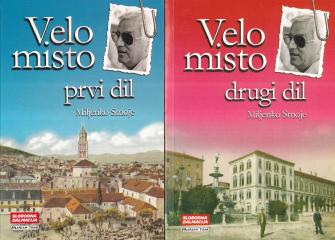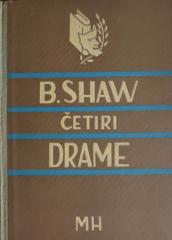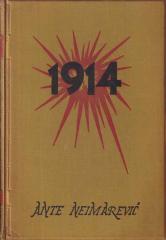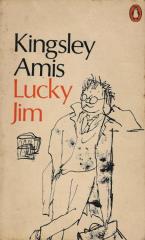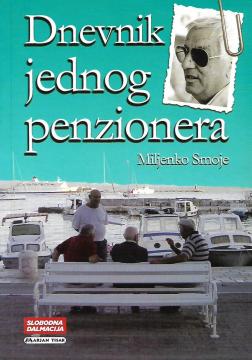
Dnevnik jednog penzionera: jednogodišnje osobno iskustvo
This book, which can be called a rich chronicle of retired life, also corresponds with today's times, but it will still confirm a different world, events and experiences that we would forget without Smoja.
Smoje retired in 1979, but continued to write the column Diary of a pensioner for Slobodna Dalmacija.
A year later, based on his own book, he wrote the script for Velo misto, a TV series that dealt with the history of Split from 1910 to 1947. Although the series was subject to strong censorship by the communist authorities at the time, it enjoyed great popularity and a cult status that continues to this day.
Smoje remains a classic of Chakavian, i.e. satirical prose that primarily connects us to Dalmatia in times before the Second World War. Until the end of his life, he addressed the domestic environment, writing about the problems he shared with ordinary people.
This book, which can be called a rich chronicle of retired life, also corresponds with today's times. But it will still confirm a different world, events and experiences that we would forget without Smoja. It is a series of diverse topics, immortalized in the original speech, enthusiastically written down and longingly stored.
No copies available
The last copy was sold recently.
